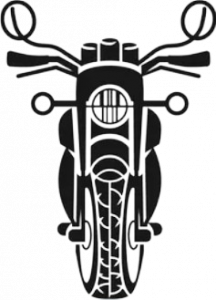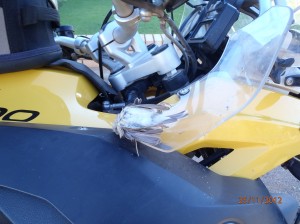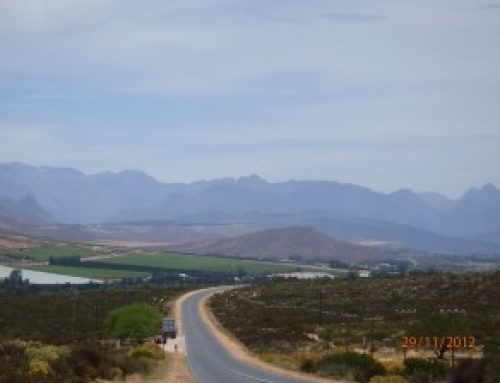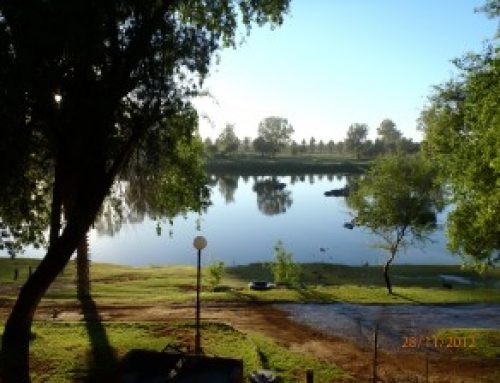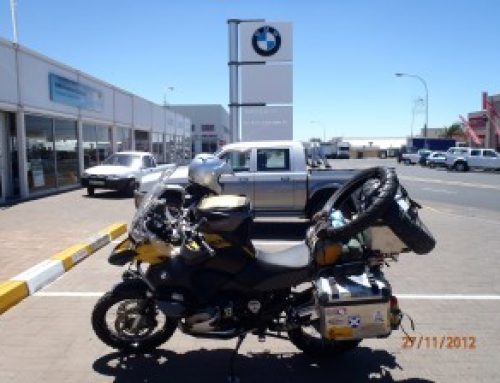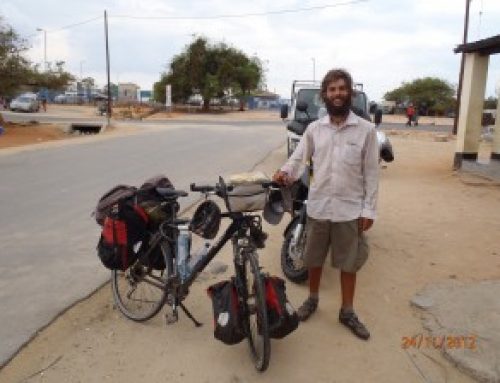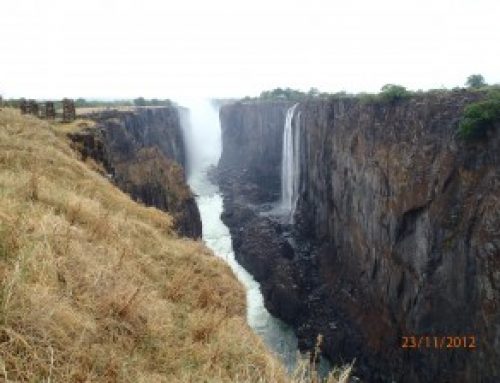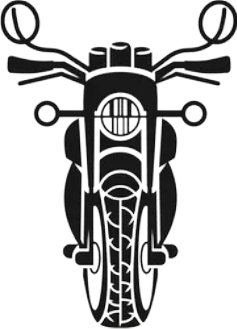449 miles
I leave the unwelcoming Francistown and head South towards South Africa. For once, I am unsure of my plans and just keep riding. Up to now, I haven’t been lonely along this adventure and when I have been riding with fellow ABR’s I often look forward to going my own way. Today is different, I’m alone and 10,000 miles away from home. I like the loneliness and want it to continue. As the famous Ted Simon wrote, “Helmets are dangerous places”. Well I agree, especially when it’s been stuck in one for over 10,000 miles.
Cattle, donkeys and goats graze dangerously by the perfectly constructed tarmac road. Occasionally, I smell a rotting carcass and shortly after see an abandoned car with its bonnet, bumper and windscreen smashed reminding me of similar scenes and smells in Mauritania all those weeks ago. A donkey excitedly plays with its mother by rearing and kicking its way across the road as I narrowly miss it by inches proving care needs to be taken in the day light.
Approaching the my final border crossing at Ramatlabama, Botswana in to South Africa, I slow down to prepare myself mentally for the emotion and of course the change in culture. Even after nineteen border crossings, I am as more nervous as any of them, knowing that this may be my final border post. I park Livingstone, with legs trembling and enter the customs office and obtain my exit stamps for my passport and Livingstone’s carnet with no payments.
I ride a kilometre further down the road and enter the South African customs office where there is a small queue, one for tourists, one for residents. Oddly enough, the people in the tourist are white and the resident queue, black, showing that change since the apartheid is slow in some places of Africa. I suspect the signs used to read Whites and Blacks not too long ago. At the amazement of the customs officers, I queue with the blacks. I find it amusing that people in both queues are all holding British passports. I ask why and they reply saying that their UK passports are easier to travel under than their African passports.
The customs officer asks a few questions and examines all my visas with a raise of an eyebrow. I get my exit stamp then move on to customs just next door to have my carnet stamped.
One last check point at the border where I am welcomingly surrounded by six South African police men who interrogate me about my journey. They are in awe and want to no more, other cars are ignored and waved through as they listen to my truly adventurous stories and, experiences with the special people along the way. I spend some time their before being wished a pleasant final journey through their country. I look at the road ahead, gulp, start the engine and leave the officers before I well up again. I’m almost there, but don’t want to be. I look up to the blue sky and thank my Mum, my angel for looking after me through so many miles of rough terrain without even a puncture, breakdown or accident, “but hang on, you’re not home yet” she whispers.
Leaving the border post, I well up again and have to pull over to take a minute. I smoke a cigarette and continue. I am riding in a 120 kph zone but travelling at 60 kph. I’m delaying my finish, I don’t want this adventure to end, I want to return via the East side of Africa, no actually I don’t want to return, I want to travel the world, I want live on the road, be a nomad, be alone. That flipping helmet thing again!
The next town I pass, a boy points, in return I wave as I have done thousands of times and often brings a smile to a face of the local. He lifts his shirt and reaches his hands around the back of his belt as if he to draw a gun then brings them forward and imitates a shooting motion using his thumb and fore finger, then laughs. I turn the bike around, jump off it and approach him. He’s scared; I introduce myself with a shake of a hand. I talk to him respectfully in hope that next time instead of pretending to draw a gun; he will wave welcomingly to the white tourist on a motorcycle. The boy and his parents waved me off.
The road is well constructed tarmac, long and very straight with absolutely nothing in between the two towns I passed apart from police officers aiming speed cameras. I keep to the speed limit. I begin to regret not taking the opportunity of accommodation back in Mafikeng because since then has been nothing. There are dilapidated working farms set back off the road, however the ploughed fields are empty and baron. There are no crops being grown for some reason, maybe the lack of water here, or are these the farms I have read so much about being taken over by opportunistic blacks who have no previous experience in agriculture or funds to buy seed. From there on, I notice Agricultural training centres where I believe, a new and now higher educated generation are being introduced in to the farming industry.
I try several lodges, campsites and hotels, all seem either abandoned, derelict or closed.
Arriving in the deserted town of Vryburg, I follow the signs to an atm so I can withdraw some Rahn. Dismounting my motorcycle I notice a small bird stuck between my windshield and hand shield. Its dead unfortunately, certainly an instant death thankfully. During this and other tours birds often swoop and suicidalally attack Livingstone’s growling engine, presumably protecting it’s young.
By luck, I stumble upon a perfect campsite with a chalet for the night. There are whites and blacks here which I like. It’s run by a South African family, quiet and surrounded by flat empty fields.
This evening in the restaurant I receive an email form my good friend telling me of a suicide bomber causing devastation in Lagos, Nigeria. Another close call being only days ahead of these troubles.
